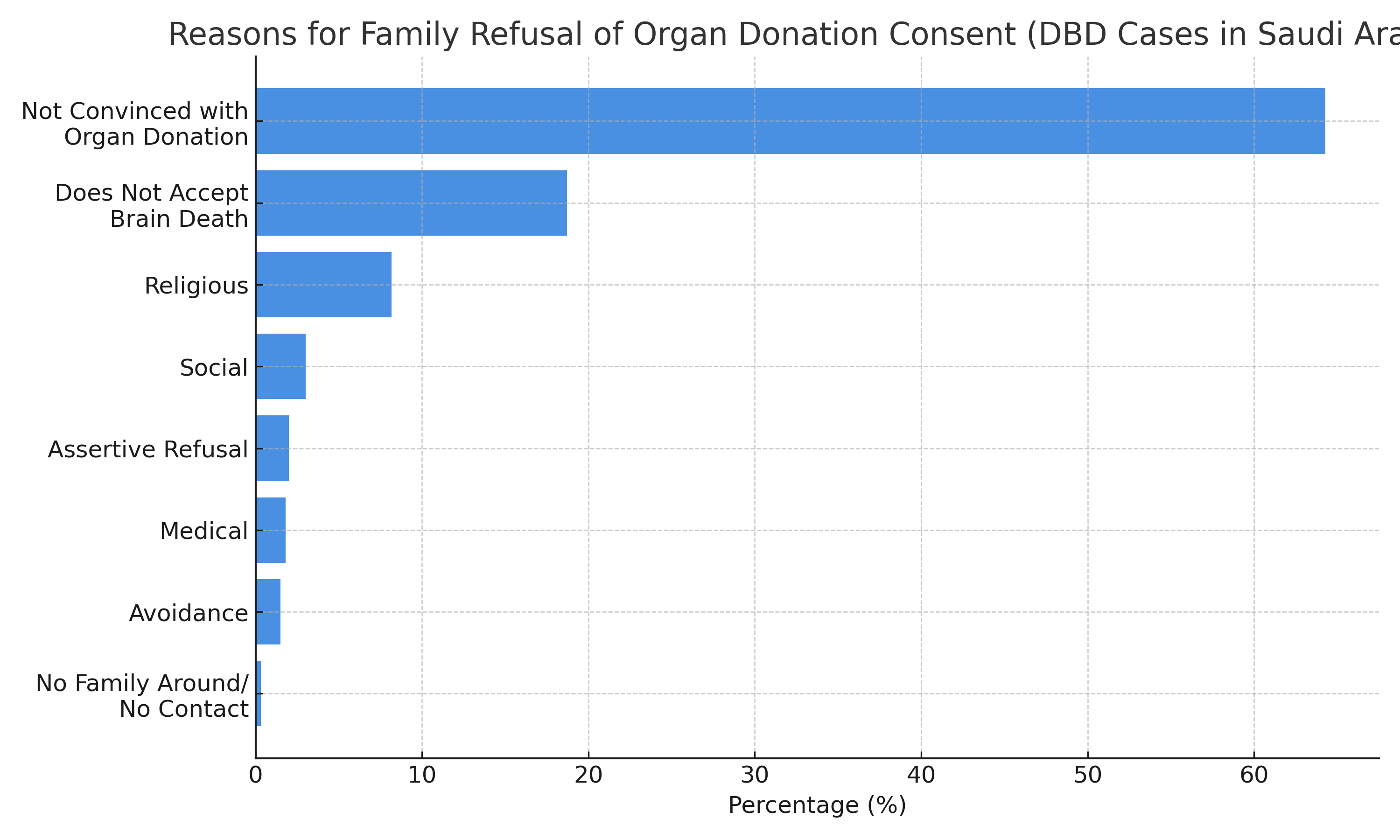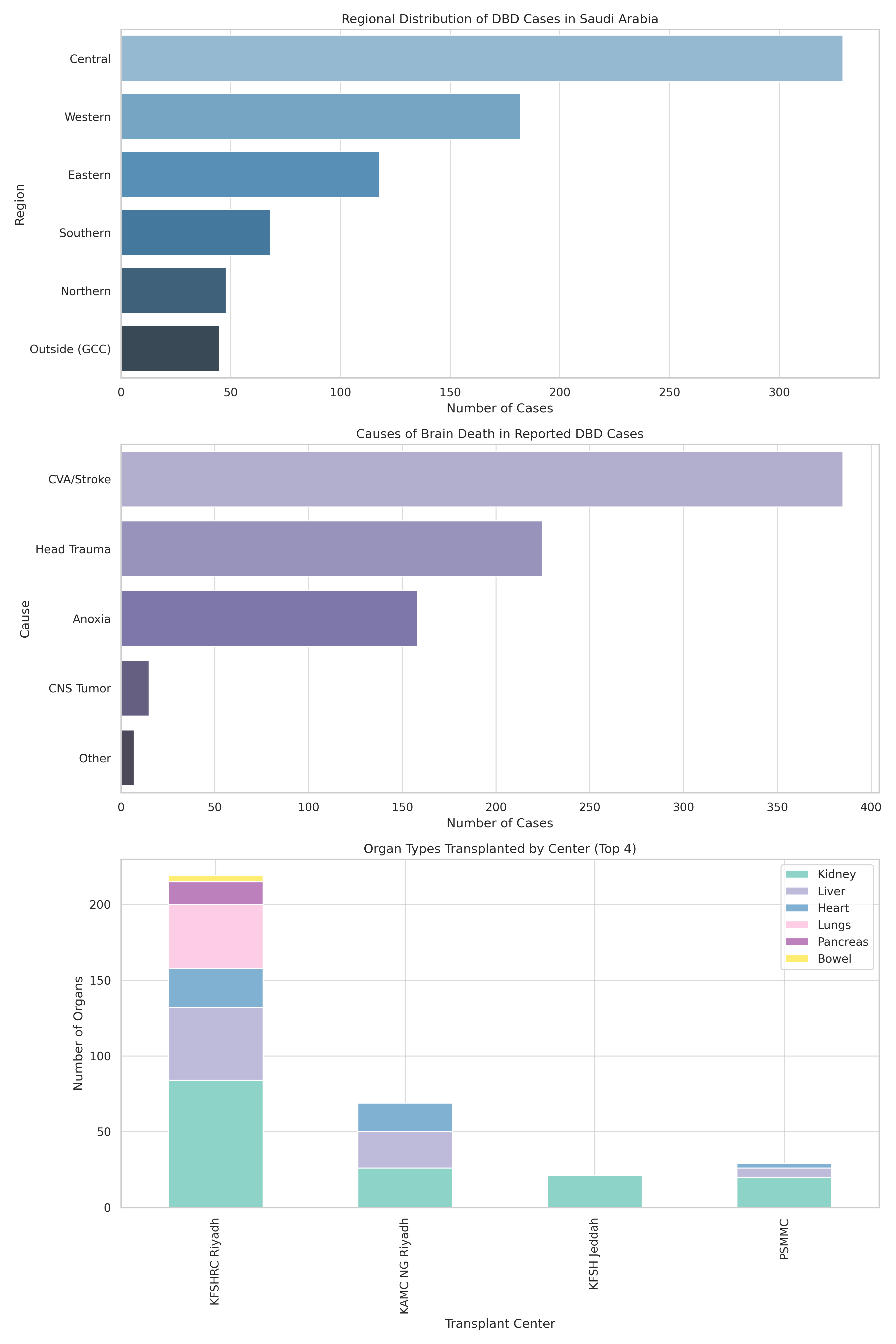Trends and challenges in donation after brain death in Saudi Arabia: A one-year nationwide review
Hazem Jokhadar1.
1Organ Procurement and Allocation Department, The Saudi Center for Organ Donation and Transplantation, Riyadh, Saudi Arabia
Introduction: Donation after brain death (DBD) is a vital source of organs globally. While DBD activity in Saudi Arabia has increased, gaps persist in consent rates and organ utilization. This study aimed to assess the current status of DBD nationally between July 2022 and June 2023 to guide policy and practice improvements.
Methods: We conducted a retrospective analysis of data from the Saudi Center for Organ Transplantation (SCOT), including all possible DBD cases reported during the study period. Descriptive statistics and trend analysis were used to evaluate eligibility, consent, and utilization patterns.
Results: Out of 790 reported DBD cases, 468 (59%) were medically eligible. The consent rate was 36.7% (n=172), with primary refusal reasons being lack of understanding of brain death (19%) and organ donation concepts (64%).

Only 135 donors were ultimately utilized. Notably, the average number of organs transplanted per donor rose from 2.5 to 11.5 compared to the prior period. Males accounted for 79% of donors, with non-Saudis comprising 99% of utilized donors. Cerebrovascular events (49%) and trauma (28%) were leading causes of brain death. Regional disparities were observed, with the Central and Western provinces contributing the highest number of donors.

Conclusion: Despite a rise in DBD activity, key challenges remain in consent acquisition and organ utilization. Addressing sociocultural perceptions, improving donor management, and enhancing healthcare infrastructure are essential to realizing the full potential of DBD in Saudi Arabia.
I would like to express my sincere gratitude to the Saudi Center for Organ Transplantation (SCOT) for providing access to the national data that made this analysis possible. I am especially thankful to all the healthcare professionals involved in donor management and family counseling across the Kingdom for their continued efforts and dedication. I also acknowledge the guidance and academic support of Dr. José Luís Escalante at the Universitat de Barcelona, whose insights were invaluable throughout the development of this work.
[1] consent
[2] brain death
[3] organ utilization
[4] Saudi Arabia
[5] public awareness